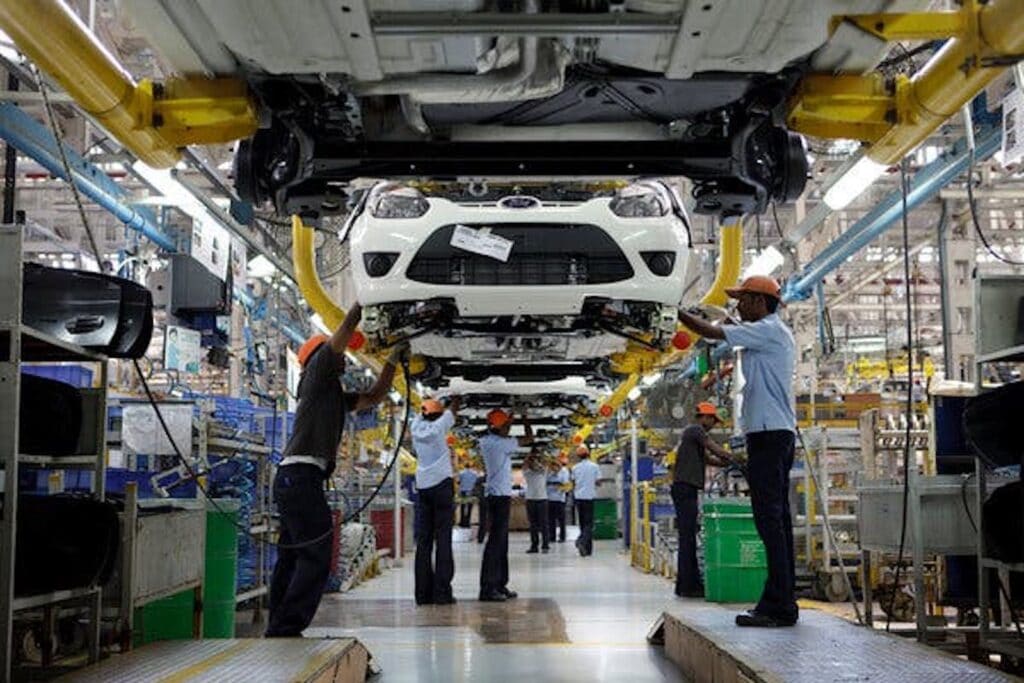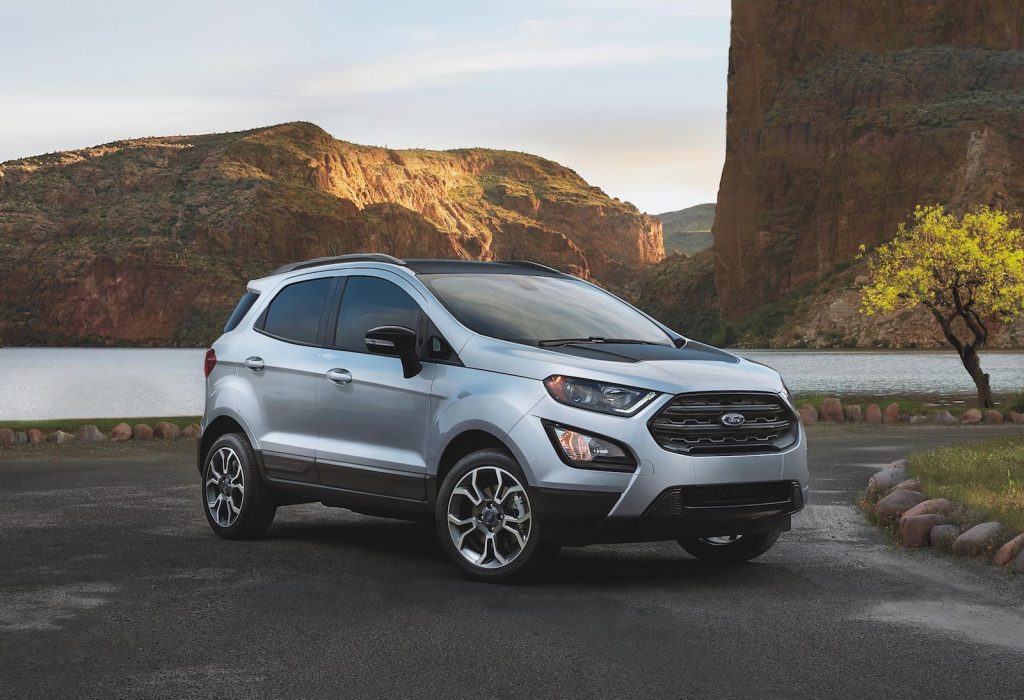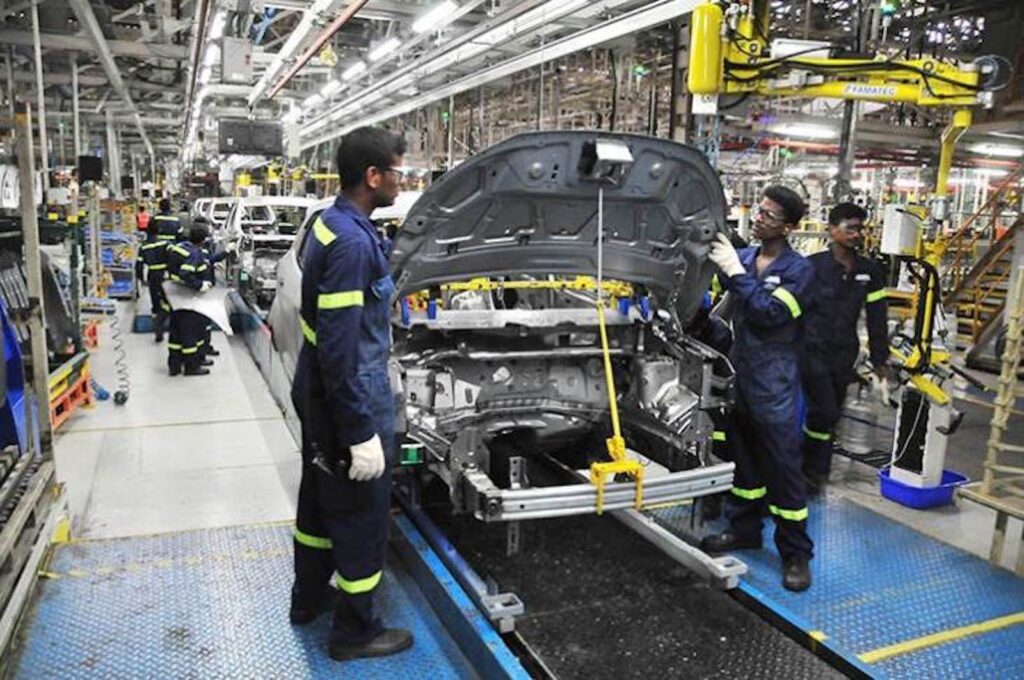Ford Motor Co. will halt all manufacturing operations in India — a move that will cost it about $2 billion.

Ford becomes the latest manufacturer to end production in the once-promising country, the world’s second most populous. General Motors initially closed its sales network and then, in 2017, ended halted production, as well. Echoing its rival, Ford said it simply couldn’t find a way to keep its factories running profitably. But Ford does plan to maintain an Indian sales network.
The decision will impact buyers in numerous other markets, including the U.S., where Ford will no longer offer the Indian-made EcoSport mini-SUV. In other markets, sales of additional products exported from India, such as the Figo, Aspire and Endeavour “will cease once existing dealer inventories are sold,” Ford said in a statement.
Ford had signaled that a major move might come after failing to complete a proposed merger with local Indian automaker Mahindra & Mahindra. That would have helped it slash production costs.
Impact on product portfolio in U.S.
The loss of the EcoSport will leave a gap in Ford’s U.S. line-up, the small SUV having provided an alternative to competitors like the Chevrolet Trax, Honda HR-V, Nissan Kicks and Kia Seltos.

Asked if a replacement could follow, U.S. spokesman Mike Levine said, “We have nothing further to announce today but we’re always looking for new ways to serve our customers.”
The announcement marks one of the most significant moves by Ford CEO Jim Farley since he was elevated to that post last year.
“Despite investing significantly in India, Ford has accumulated more than $2 billion of operating losses over the past 10 years and demand for new vehicles has been much weaker than forecast,” Farley said in the statement released Wednesday morning. “As part of our Ford+ plan, we are taking difficult but necessary actions to deliver a sustainably profitable business longer-term and allocate our capital to grow and create value in the right areas.”
Massive market size draws attention
While India may have a population of more than 1 billion — second only to China — it has proved to be a much more difficult market to crack than many in the auto industry had anticipated. The overall vehicle market peaked at 26.28 million in 2019, tumbling sharply during the COVID pandemic that hit India hard. But the numbers are misleading in that two-wheelers make up about 80% of demand. Passenger vehicles have barely reached the 5 million mark.

And local manufacturers and Asian partners, including Tata Motors, Maruti Suzuki and Mahindra & Mahindra, dominate. Hyundai has become another strong player. Western brands have barely dented the market. Ford has been in India for25 years but still holds a mere 2% share.
It hoped to shore up operations there by exporting products like the EcoSport to the U.S., Europe and other regions, but the plan didn’t pan out. It has accumulated about $2 billion in operating losses. And it now expects the decision to end Indian manufacturing to generate a $2 billion hit to its bottom line.
“Despite (Ford’s) efforts, we have not been able to find a sustainable path forward to long-term profitability,” said Anurag Mehotra, who heads the company’s Indian operations. “The decision was reinforced by years of accumulated losses, persistent industry overcapacity and lack of expected growth in India’s car market.”
Manufacturing out, sales remains
The Ford engine plant in the state of Gujarat will close in the fourth quarter of this year, with its Chennai assembly and engine operations to end in 2022. About 4,000 workers will be impacted. The automaker has about 11,000 employees in the country and will maintain some non-production operations there.
For now, at least, Ford said it plans to maintain its vehicle sales operations in India.
“Ford will begin importing and selling must-have, iconic vehicles, including Mustang coupe,” it said in its statement. “Customers in India also will benefit longer term from the Company’s plan to invest more than $30 billion globally to deliver all-new hybrid and fully electric vehicles, such as Mustang Mach-E.”







